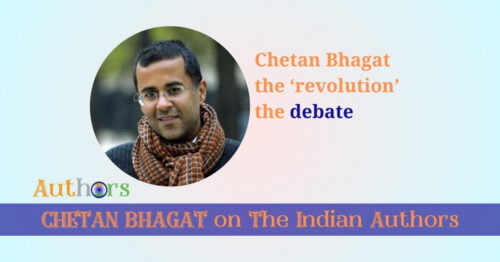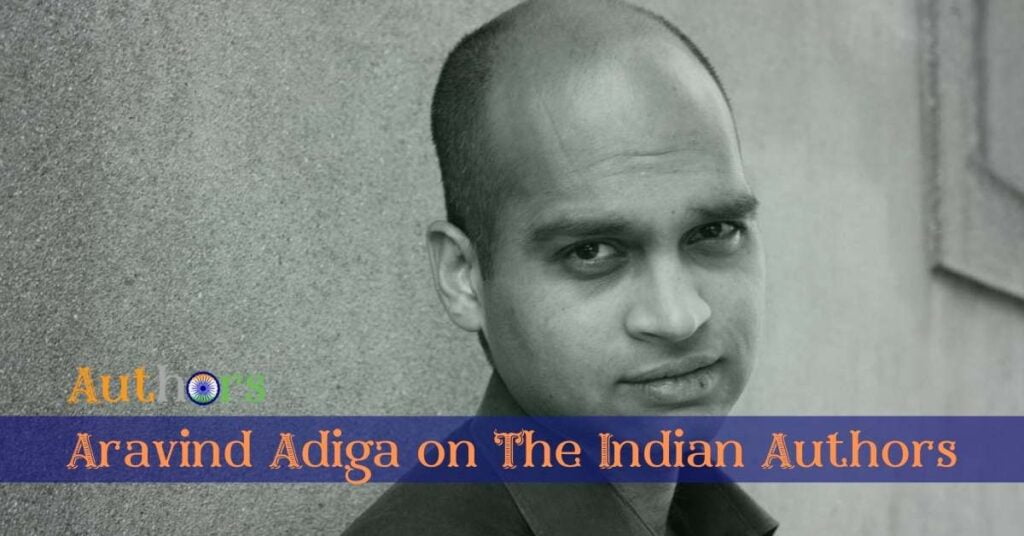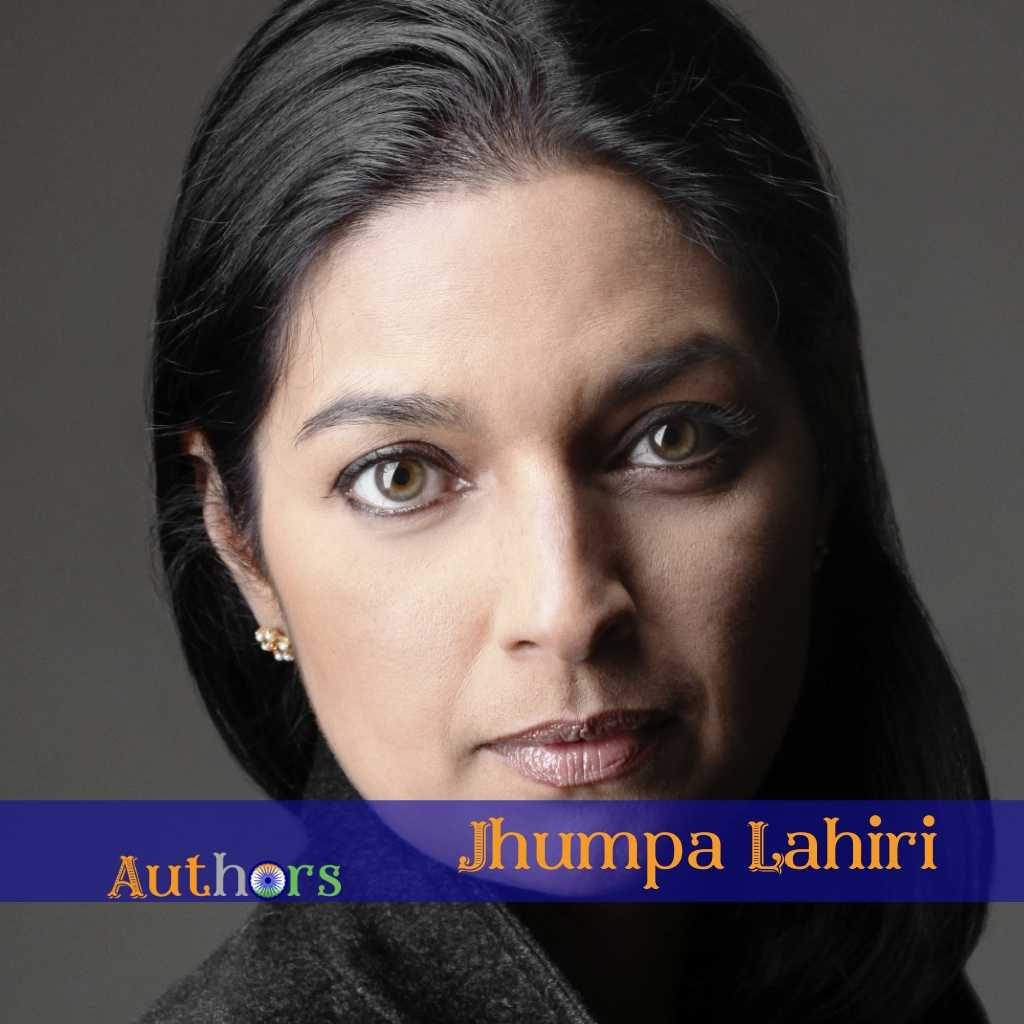Name: Chetan Bhagat
Born: April 22, 1974, New Delhi
Education: Indian Institute of Technology (IIT) Delhi, Indian Institute of Management (IIM) Ahmedabad
Occupation: Author, Columnist, Motivational Speaker, Lobbyist, X (formerly Twitter) Punchbag
Genre: Fiction, Non-fiction
Famous Works: Five Point Someone, One Night @ the Call Center, 2 States, Half Girlfriend
Notable Awards: None specified as of today
Chetan Bhagat stands as a prominent figure in contemporary Indian literature, known for his distinctive narrative style that resonates with a wide readership. Born on April 22, 1974, in New Delhi, Bhagat’s journey into the literary world is intertwined with his academic pursuits. With a background in engineering from the Indian Institute of Technology (IIT) Delhi and later earning an MBA from the Indian Institute of Management (IIM) Ahmedabad, Bhagat brings a unique perspective to his writing, often infusing his works with relatable experiences and contemporary themes. Bhagat’s literary repertoire primarily spans the realms of fiction and non-fiction, with some of his notable works including “Five Point Someone,” “One Night @ the Call Center,” “2 States,” and “Half Girlfriend.” His writing style is characterised by its simplicity, making it accessible to a broad audience. Bhagat’s narratives often delve into the complexities of modern relationships, societal norms, and the aspirations of the Indian youth, creating a connective thread with readers from diverse backgrounds. In addition to his role as an author, Chetan Bhagat is recognised for his contributions as a columnist and motivational speaker. Through his columns and public engagements, he addresses contemporary issues, offering insights into the dynamics of Indian society and culture. Bhagat’s ability to articulate the pulse of the youth and address societal concerns has contributed to his widespread influence beyond the literary sphere. Chetan Bhagat, nevertheless, took his beyond-literary occupation to the next level while lobbying for Pfizer COVID-19 vaccines. He was criticised and called out by many responsible citizens when it was made public, and scientifically proven, that the Pfizer vaccines were not trialled and tested as per the industry standards… and side effects were beyond one’s comprehension. While Chetan Bhagat’s work has garnered both acclaim and criticism, there’s no denying the impact he has had on shaping the landscape of popular Indian literature. His writing style, marked by simplicity and a keen understanding of the contemporary Indian experience, has made him a literary figure with significant influence in the 21st century. In this article, we will analyse everything about Bhagat in detail. We’ll also navigate through a detailed critical evaluation of Bhagat’s writings and accomplishments.
Biographical Details:
Chetan Bhagat, a prominent figure in the contemporary literary landscape of India, emerged into the world on April 22, 1974, in New Delhi. Raised in a dynamic environment shaped by the fusion of traditional values and the evolving ethos of modern India, Bhagat’s early years were influenced by the cultural tapestry woven by his family. He got a very good dedication and the journey commenced in the realm of engineering, as he pursued studies at the esteemed Indian Institute of Technology (IIT) Delhi. Subsequently, Bhagat furthered his academic pursuits, delving into management by obtaining an MBA from the prestigious Indian Institute of Management (IIM) Ahmedabad. This dual educational background laid the foundation for a unique perspective that would later find expression in his literary works.
In 1998, Bhagat embarked on a different chapter of life by marrying Anusha Suryanarayanan. This union brought forth a balancing act between familial responsibilities and the pursuit of literary endeavours, mirroring a life that seamlessly blended personal and professional aspirations.
Bhagat’s engagement with diverse cultures and ideologies, although primarily within the Indian context, has contributed to the breadth of his literary repertoire. His experiences, rooted in the fabric of modern India, have added layers to his storytelling, making his works relatable and reflective of the evolving societal landscape.
Chetan Bhagat’s dual role as an author and commentator on societal issues positions him at the intersection of literature and public discourse. While his literary contributions may not align with the political activism of Sarojini Naidu, they undeniably reflect a commitment to understanding and articulating the pulse of contemporary India.
Writings of Chetan Bhagat:
Chetan Bhagat, a prominent contemporary author, has carved a niche for himself in the literary world with a series of compelling works that resonate with a broad readership. His literary journey commenced with the publication of “Five Point Someone” in 2004, a novel that swiftly captured the attention of readers for its relatable narrative style and exploration of the challenges faced by students in the Indian education system. This debut work not only established Bhagat as a noteworthy writer but also laid the foundation for a series of bestselling novels that followed.
Bhagat’s subsequent novels, including “One Night @ the Call Center,” “2 States,” and “Half Girlfriend,” continued to garner widespread acclaim for their engaging storytelling and exploration of contemporary themes. His writing style, marked by simplicity and accessibility, has contributed to his popularity among a diverse audience, making his works a significant part of modern Indian literature.
Beyond fiction, Chetan Bhagat has ventured into the realm of non-fiction with books like “What Young India Wants” and “Making India Awesome,” where he shares his perspectives on various societal issues. This transition showcases his versatility as an author, addressing not only fictional narratives but also engaging with real-world challenges and aspirations.
In addition to his literary pursuits, Bhagat has become a prominent figure in the public domain, contributing columns to leading newspapers and engaging in public discussions on contemporary issues. This multifaceted role as an author, columnist, and commentator reflects Bhagat’s commitment to engaging with the pulse of contemporary India and addressing the concerns of the youth.
Chetan Bhagat’s works often revolve around themes such as love, ambition, societal expectations, and the challenges faced by the younger generation. While some critics may argue that his writing lacks literary complexity, there’s no denying the impact he has had on making literature more accessible to a wider audience and sparking discussions on pertinent societal issues.
As we delve into the extensive body of work by Chetan Bhagat, it becomes evident that his contribution to Indian literature extends beyond the realm of fiction. His ability to capture the zeitgeist of modern India and address pressing issues through his writing has solidified his position as a contemporary literary figure with enduring relevance.
Chetan Bhagat as a Novelist – a Critical Assessment:
A critical assessment of Chetan Bhagat as a novelist unveils a distinctive impact on the contemporary literary scene, characterised by both strengths and limitations. Bhagat’s foray into the realm of fiction, particularly in the genre of popular and commercial literature, has undeniably left an indelible mark on a wide readership.
Chetan Bhagat’s novels are often praised for their accessibility and relatability. His writing style is straightforward, making it easy for a diverse audience, including those less acquainted with literature, to engage with his narratives. This simplicity has contributed to his widespread popularity, with several bestsellers such as “Five Point Someone,” “2 States,” and “Half Girlfriend” resonating with readers across different demographics.
Bhagat’s thematic focus on the challenges faced by the contemporary Indian youth, be it in educational institutions, relationships, or societal expectations, reflects an acute understanding of the pulse of his target audience. The relatable nature of his characters and storylines has played a pivotal role in making his novels commercially successful and culturally relevant.
However, a critical assessment necessitates an examination of potential limitations in Bhagat’s work. Some literary critics argue that his writing lacks the depth and complexity associated with traditional literary fiction. The straightforward narrative style, while accessible, may be perceived as lacking the nuanced exploration of emotions, character development, and intricate plot structures found in works by more critically acclaimed authors. Moreover, Bhagat’s novels have been criticized for occasionally perpetuating stereotypes and presenting a simplified view of societal issues. Critics argue that his portrayal of characters and situations may lean towards a stereotypical representation, potentially limiting the depth of social commentary in his works.
Despite these critiques, Chetan Bhagat’s novels have undeniably played a role in popularising reading culture in India and reaching a demographic that may have been less inclined towards literature. His impact on the literary landscape is marked by his ability to connect with the masses, addressing contemporary issues and fostering a dialogue on societal challenges.
In conclusion, a critical assessment of Chetan Bhagat as a novelist acknowledges his significant contributions to popular literature, characterised by accessibility, relatability, and thematic relevance. While some critics may point to limitations in terms of literary depth and representation, Bhagat’s influence on modern Indian literature remains substantial, shaping reading habits and cultural conversations.
Literary Contributions:
Chetan Bhagat’s literary contributions have significantly shaped the landscape of contemporary Indian literature, particularly in the realm of popular fiction. His debut novel, “Five Point Someone” (2004), marked a turning point in Indian publishing, introducing a fresh narrative style that resonated with a broad readership. Bhagat’s novels are characterised by their simplicity, relatability, and exploration of modern-day challenges faced by the youth.
It should be noted that Chetan Bhagat’s foray into the literary domain was marked by a departure from traditional narratives, opting for a narrative style that resonated with the contemporary Indian youth. His debut novel, “Five Point Someone,” catapulted him into the limelight, showcasing a storytelling approach that combined simplicity with relatable themes. Bhagat’s subsequent works, including “One Night @ the Call Center,” “2 States,” and “Half Girlfriend,” continued to echo his signature style, delving into the intricacies of modern relationships and societal dynamics.
Beyond fiction, Chetan Bhagat has ventured into non-fiction with books like “What Young India Wants” (2012) and “Making India Awesome” (2015). These works showcase his engagement with real-world issues, offering his perspectives on topics ranging from youth aspirations to societal reforms. Bhagat’s ability to bridge the gap between fiction and non-fiction reflects his versatility as an author.
Critics argue and one can apparently observe that Bhagat, at the same time while making literature accessible and convenient, broke the wall that distinguished commercial novels and C-grade content that ‘just sells’. Sleazy descriptions of sexual encounters and bedroom scenes mark many pages in Bhagat’s works. It has emboldened young authors to do the same and, sadly but eventually, tarnished the taste of fiction among Indian readers (especially young). An experiment presented once is an experiment and it looks justified. The same experiment repeated now and then becomes drab and people begin to ignore the same. The same may have happened with Bhagat’s works.
Still, even with the myriad limitations that this author possesses, one cannot ignore noticing that Chetan Bhagat’s literary contributions are marked by their accessibility, thematic relevance, and impact on popular culture. While his work may differ in style and depth compared to more traditional literary forms, Bhagat’s ability to connect with the masses and address pertinent issues has left an enduring mark on the landscape of contemporary Indian literature.
Views from Literary Figures:
Chetan Bhagat has been a subject of discussion among authors, famous writers, and literary critics, with opinions varying on his impact and contributions to Indian literature. While some applaud his ability to connect with a wide readership and make literature more accessible, others criticize the perceived lack of literary depth in his works. Renowned author Salman Rushdie once remarked that Bhagat’s books are “fast food for the mind” and criticised the simplicity of his writing style. Noted Indian author and critic Nilanjana S. Roy has expressed reservations about the literary quality of his work, stating that “it doesn’t have the depth or the insight that you would expect from a serious novelist.” Despite these criticisms, Bhagat has also garnered support for his role in popularising reading culture in India, with some acknowledging the importance of reaching a broader audience through his relatable narratives. Overall, the opinions on Chetan Bhagat’s literary contributions remain diverse and continue to fuel discussions within the literary community.
Activism, Lobbying, mutating into X (formerly Twitter) Punching Bag:
The author has faced criticism for his ‘alleged’ lobbying for the Pfizer vaccine in India during the peak months of the COVID-19 pandemic. Critics argue that Bhagat’s support for the Pfizer vaccine was driven by vested interests rather than genuine concern for public health. During the peak of the pandemic, India was facing a shortage of vaccines, and the government was in talks with various pharmaceutical companies to procure vaccines for its population. Bhagat was vocal about his support for the Pfizer vaccine, claiming that it was more effective and safer than other vaccines available at the time. He used to post his rocket-science calculations detailing how India could take more than three years to vaccinate all citizens with the COVID shots.
The math is simple. If we vaccinate at current pace of 16lakhs/day, we will take 3.2years to finish our vaccination targets for India, or by second half 2024.
To finish this in next 4 months, vaccination pace needs to go up 10x to 1.6cr/day. Something drastic is needed. pic.twitter.com/chGMcS4GIh
— Chetan Bhagat (@chetan_bhagat) May 10, 2021
We are only in the beginning of the year 2024 now, just to add perspective to it.
We need to pay whatever it takes for enough vaccines, whether manufacturing them here or importing them. We then need to administer the vaccines literally at every other street corner. Only then we will get out of this mess.
— Chetan Bhagat (@chetan_bhagat) April 28, 2021
Solution is in sourcing and administering billions of doses of the vaccine.
We should have a clear idea and targets on how many people will be vaccinated and by when.
Just anecdotal stories of efforts being done, while commendable, is not enough.— Chetan Bhagat (@chetan_bhagat) April 28, 2021
The desire to show love for country in social media doesn’t mean we keep dressing up data to make ourselves look good.
Especially when it comes to vaccinations.We need 70% of India vaccinated to get out of this. 70% of ALL Indians.
— Chetan Bhagat (@chetan_bhagat) July 18, 2021
I know using brains isn’t a twitter speciality, but try to understand:
1) We need a LOT of vaccines FAST. Indian ones exist, but they are not enough in numbers.
2) Hence, we need all other non-Indian vaccines too.
Stop this ‘us vs them’ in vaccines at least. People are dying.— Chetan Bhagat (@chetan_bhagat) April 28, 2021
What’s likely to happen:
1. Rich countries will vaccinate their people first.
2. Their leftovers will finally make their way to us.
3. We’ll vaccinate,and then chest thump on how great we are.
4. We’ll get ok and go back to being unscientific and hating others who aren’t like us.— Chetan Bhagat (@chetan_bhagat) May 10, 2021
Critics point out that Pfizer had been lobbying for indemnity in India, which would protect it from legal liability in case of adverse effects from the vaccine. This has led to accusations that Bhagat was influenced by the pharmaceutical company’s interests rather than the public interest. Moreover, some have criticized Bhagat for his lack of expertise in the field of public health and medicine, arguing that he was not qualified to make recommendations about which vaccine was best for India.
And thus, Bhagat turned himself into a punching bag with zero understanding of the subjects he used to tweet about, and continues to do the same.
List of Works by Chetan Bhagat with Publication Years:
- Five Point Someone (2004)
- One Night @ the Call Center (2005)
- The 3 Mistakes of My Life (2008)
- 2 States (2009)
- Revolution 2020 (2011)
- Half Girlfriend (2014)
- One Indian Girl (2016)
- The Girl in Room 105 (2018)
- One Arranged Murder (2020)
- 400 Days (2021)
Academic Impact:
Chetan Bhagat’s novels have had a significant impact on the academic discourse on literature in India. His works have been widely read and discussed, sparking debates about their literary merit and the representation of contemporary Indian society in his narratives. Critics argue that Bhagat’s novels have brought a fresh perspective to Indian literature, focusing on the lives of young Indians and their experiences in a rapidly changing society. His works have been praised for their accessible language and relatable characters, which have resonated with a wide audience. Many scholars have written extensively about Bhagat, his writing style, his works in social context and many others. At the same time, some academics have criticised Bhagat’s writing style, claiming that it lacks the depth and complexity of more traditional literary works. They argue, in their academic papers, that his novels are overly simplistic and do not engage with the rich cultural and literary heritage of India. In an ongoing set of tennis ball exchanges in the academic court, it is undeniable that Bhagat’s novels have played a significant role in shaping the contemporary literary landscape in India. His works have inspired a new generation of writers to explore relatable storytelling and tackle contemporary issues, thereby contributing to the diversity and vibrancy of Indian literature.
Awards and Honours:
Luckily, none noticeable enough to be shelved here!
Legacy and Impact:
Chetan Bhagat’s legacy resonates as a significant figure in contemporary Indian literature and popular culture. His novels, marked by their simplicity and relatability, have left an enduring impact on the reading habits of a diverse audience. Bhagat’s contribution to making literature accessible to the masses is acknowledged, and his work continues to be widely read and discussed. Beyond the literary sphere, Bhagat has become a prominent commentator on societal issues through his columns and public engagements, influencing conversations on topics ranging from education to youth aspirations. While opinions on the literary depth of his work may vary, Chetan Bhagat remains a symbol of the evolving literary landscape in India, with his influence extending beyond academic circles into the broader cultural consciousness of a nation navigating the complexities of modernity.
Conclusion:
To conclude this detailed biography and critical evaluation of Chetan Bhagat’s public life, writing, and contribution to the literary discourse, we cannot deny ignoring his brilliance in simplifying things… daring to bring the elitist delight, fiction, down from the high and arrogant back of the egoistic horse… Chetan Bhagat’s legacy is intricately woven with the fabric of contemporary Indian literature and societal discourse. His novels, characterised by their accessibility and thematic relevance, have left an enduring imprint on the reading habits of a diverse audience. While some critics may RIGHTLY question the literary depth of his work, Bhagat’s influence extends beyond the realms of fiction, with his columns and public engagements contributing to conversations on pressing societal issues. His life journey, from an engineer and banker to a celebrated author and commentator, mirrors the evolving dynamics of modern India. Chetan Bhagat’s legacy serves as an inspiration, challenging conventional norms and reflecting the cultural shifts in a society grappling with change. As we reflect on the pages of recent history, Chetan Bhagat’s contributions stand as a testament to the symbiotic relationship between literature, popular culture, and the ongoing quest for understanding and addressing the challenges of contemporary life.
Articles and Reviews of Interest:
Book Reviews:
2 States, The Story of My Marriage
One Night @ Call Centre
Funny:
Chetan Bhagat, the novelist, a roast
Written by Amit for The Indian Authors





1 Comment. Leave new
Super, kk my career support it my mm.